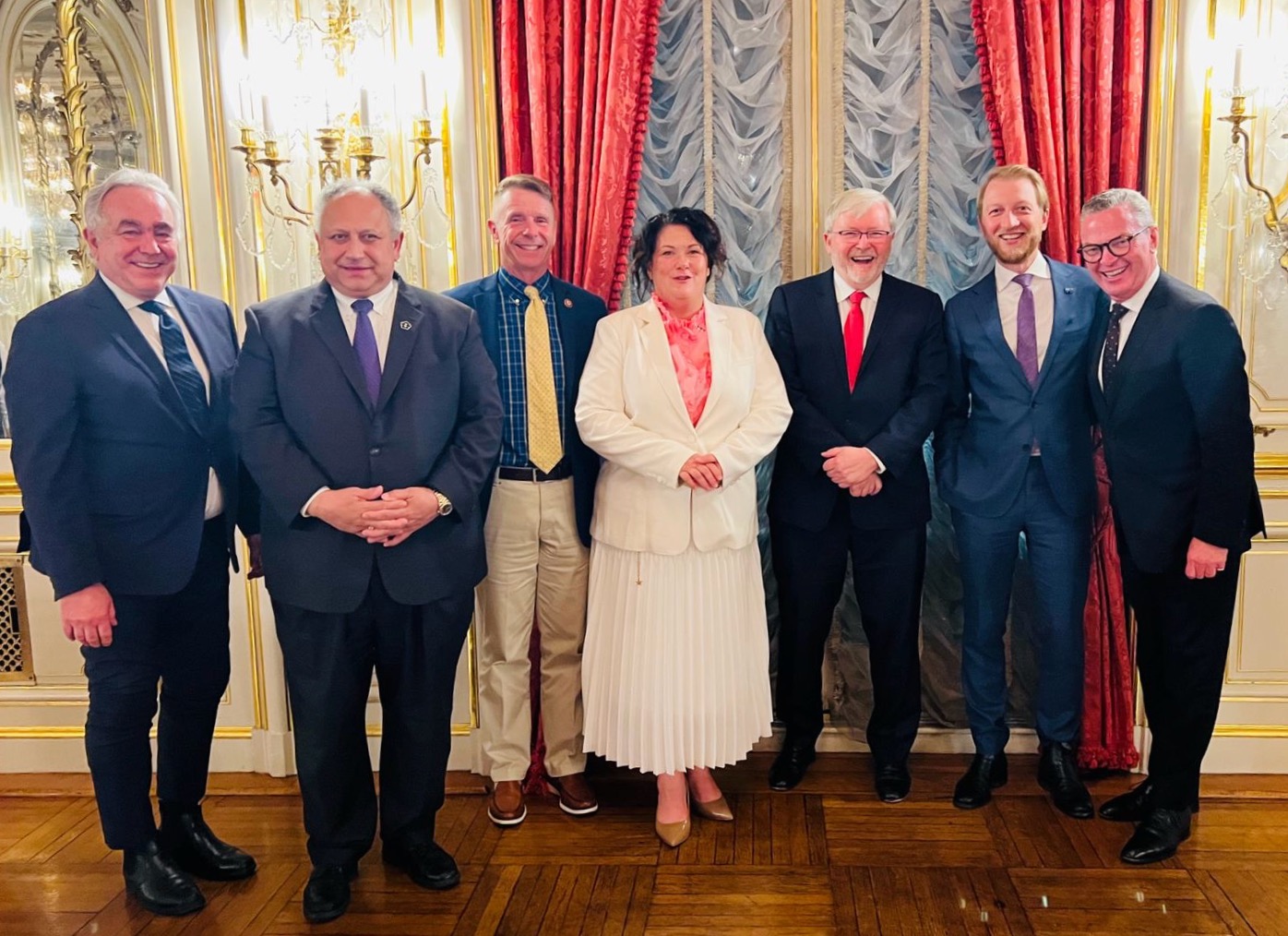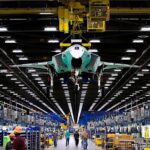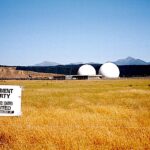The defence lobbying firm Pyne & Partners – chaired by the former Australian Defence Minister Christopher Pyne – co-hosted an AUKUS reception and dinner in Washington at the swanky Cosmos Club on Embassy Row, with Northrop Grumman Corporation, on 3 April 2023.
Northrop Grumman is one of the largest defence companies in the world, and is the parent company to spin-off Huntington Ingalls, the US’s largest naval shipbuilder and one of the builders of the Virginia-class submarines destined to come to Australia.
The meeting was ‘private’ even though it concerned Australian defence contracts and arrangements and was attended by the Australian Ambassador and two Australian MPs, and senior US defence officials. Without public disclosure of what happened at the gathering, the Australian public once again is left in the dark.
However, Declassified Australia has been able to prise open the locked shutters on the private event to shine in some needed light. With hundreds of billions of dollars at stake through the AUKUS submarine deal, what calibre of people could be expected to attend such an event and what could possibly be their interest?
Documents produced pursuant to Freedom of Information (FOI) laws, by this writer, confirm that Australia’s Ambassador to the USA, Kevin Rudd, was invited to provide a speech, the contents of which journalists had previously reported to be ‘off the record’.
Declassified Australia has obtained the Ambassador’s briefing notes – though somewhat redacted due to national security considerations, ‘for the security of the Commonwealth’ and to avoid ‘damage to the defence, or international relations, of the Commonwealth’.
Rudd’s address was scheduled to follow those of the US Secretary for Navy, Carlos Del Toro, and Congressional Representative Rob Wittman. Rudd was allowed a period of five minutes for his remarks, ‘in between the main course and dessert’.
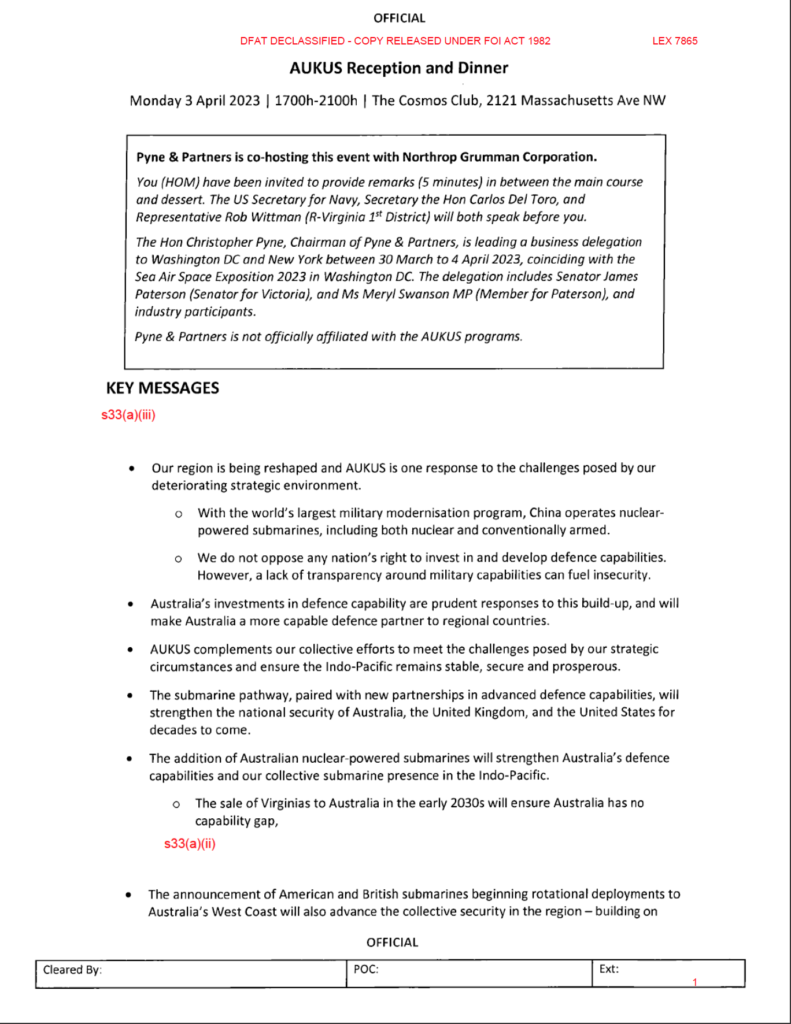
Download document.
Congressman Wittman was among a bipartisan group of members of the US House of Representatives who in January sent a letter to President Joe Biden expressing support for the AUKUS deal. He unsurprisingly welcomed the huge AUKUS submarine spend as ‘a unique opportunity to leverage the support and resources possible under AUKUS to grow our industrial base to support both US and Australian submarine construction’.
In January he also was suggesting sending a jointly operated US submarine to Australia, saying, “I think it would be dual-crewed. I think too, that the command of the submarine would be a dual command”. These remarks, of course, raise sovereign control issues.
Another claim to fame of Representative Wittman was being named in a September 2022 analysis by The New York Times as one of at least 97 members of Congress who bought or sold stock, bonds or other financial assets that intersected with their congressional work or reported similar transactions by their spouse or a dependent child.
Although the Times noted that U.S. lawmakers are not banned from investing in any company, including those that could be affected by their decisions, the report confirmed that Congressman Wittman traded shares of three defence contractors while he was a member of the House Armed Services Committee, which incidentally included the AUKUS event co-sponsor, Northrop Grumman.
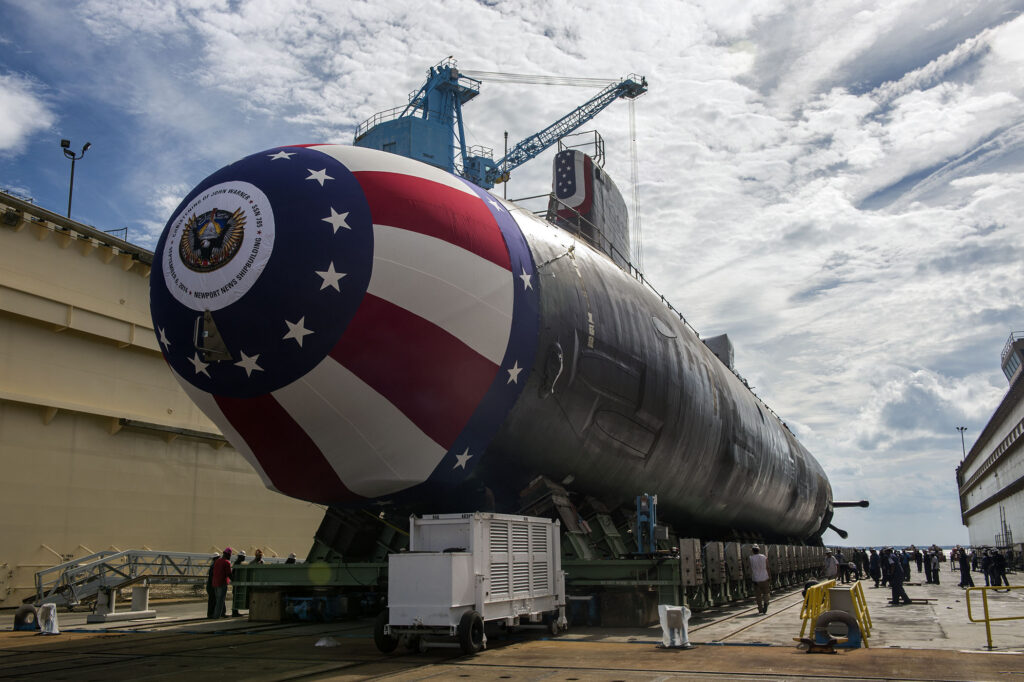
The Congressman’s response to the media revelation was to say: “I have consistently believed members of Congress should not improperly benefit from their role, and I support measures to avoid conflicts of interest.” He went on to say, “This is why I relinquish all control of my investment decisions to my financial adviser to use third-party investment managers who implement trades at their own discretion without my consultation or input,” which, he noted, is allowed under House ethics rules.
The new FOI documents confirm that Congressman Wittman is currently the Vice Chair of the US House Committee on Armed Services, Chair of the Tactical Air and Land Forces Committee and Seapower and Projection Forces Subcommittee, is on the House Select Committee on Strategic Competition between the US and the Chinese Communist Party (sic), and is on the Energy and Mineral Resources Subcommittee of the US Congress.
The FOI documents reference that, ‘Rep Rob Wittman was first elected to serve the first congressional district of Virginia in December 2007. His district is adjacent to Naval Base Norfolk as well as the major shipbuilding facilities in Newport News, Virginia – including one of the shipyards that builds Virginia-class attack submarines (Huntington Ingalls). Many of his constituents are employed either by the shipyards themselves, or by the supporting industry in the region.’
So it’s all just hunky-dory that through his investment advisor he can invest to profit from the success of defence contractors.
As to Secretary of the Navy, The Hon Carlos Del Toro, the FOI document suggests under the sub-heading, ‘Industrial collaboration’, that Ambassador Rudd was specifically tasked to ‘seek Toro’s ongoing support and endorsement’, and to recognise that ‘we continue to work with the US government agencies to overcome barriers to industrial base, supply chain and technology collaboration’.
China’s military modernisation program and its operation of nuclear-powered submarines, including both nuclear and conventionally armed, are mentioned in Ambassador Rudd’s ‘briefing notes’ obtained under FOI, along with this acknowledgement:
‘We do not oppose any nation’s right to invest in and develop defence capabilities. However, a lack of transparency around military capabilities can fuel insecurity.’
The stated concern about lack of transparency is at odds with the Australian government’s own lack of transparency to Australian citizens in relation to the entire AUKUS deal. They have yet to make signed copy of the agreement publicly available.
As to the effect of AUKUS on Australia’s defence sovereignty, Rudd’s briefing notes confirm Australia’s generous desire to ‘ease pressure on the US supply chains’ and provide the US submarines with their long-desired Indian Ocean naval base:
‘Australia will build new maintenance and repair capabilities that will directly benefit US submarines rotating through HMAS Stirling [naval base near Perth]’.
The language of the FOI document – ‘aligning national priorities’, ‘collective strength’, ‘mutual strategic benefit’, ‘deeper cooperation’ – all seems to be geared towards a fully integrated strategic and industrial base with little room for Australia’s sovereign defence issues.
And what does it say when a private Australian defence lobbyist funds eight-day international trips for the attendance of two Australian ‘non-Defence’ politicians to a private Washington event it is co-hosting with one of the largest defence companies in the world? And what does it say when the lobbyist invites a US guest speaker who trades in defence company stocks while holding political defence offices? And what does it say when input by senior US military officials and by our own ambassador to the US, until this FOI application, we’re not even permitted to see?
Transparency and integrity of decision-making in relation to AUKUS ought not be shrouded in lavish invitation-only discussions where private interests eye-off the billions in potential profits — and where Australia’s future is on the table.
—
Before you go…
If you appreciate Declassified Australia’s investigations, remember that this all costs both time and money. Join over 5,000 followers and get our Newsletter for updates. And we’d really appreciate if you could subscribe to Declassified Australiato support our ongoing work. Thank you.
